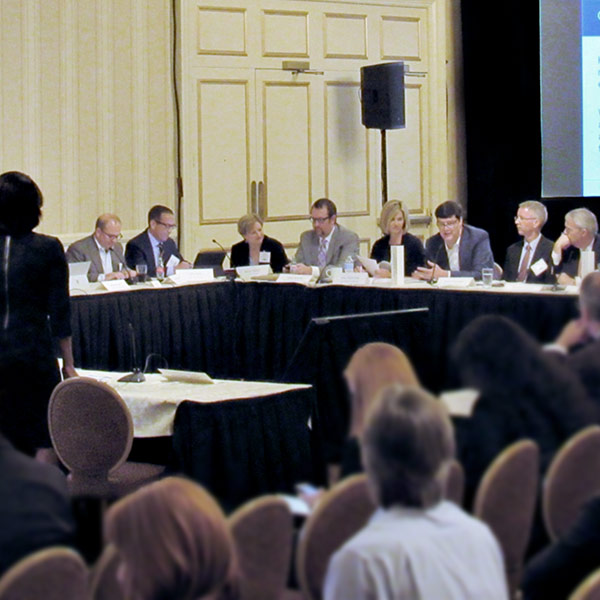By Amanda Durish Cook
ST. PAUL, Minn. — Having fulfilled its original mandate, MISO’s Energy Storage Task Force (ESTF) will get a new lease on life: as an expert advisory panel on increasingly sophisticated storage issues.
The move means the task force will begin developing white papers on technical storage issues and approaching other stakeholder committees about recommended agenda items.
MISO’s Steering Committee last week endorsed the change to help resolve an identity crisis that arose this spring after the task force wrapped up its key mission of identifying discussion topics on FERC Order 841 compliance to be assigned to larger stakeholder committees.
The committee approved a revised ESTF charter last month that allows the group to evaluate energy storage issues rather than simply identifying them for committee assignment. It can also make recommendations directly to MISO and stakeholders, without first approaching the committee. (See MISO Grants Storage Task Force More Authority.)
But stakeholders and ESTF members began asking if the task force should stop reporting directly to the Steering Committee and perhaps report to another committee actively discussing electric storage. Under MISO’s Stakeholder Governance Guide, the Steering Committee is tasked with assigning new grid issues to stakeholder committees.
Although the ESTF will not change its reporting relationship, the changes mean ESTF leadership can now reach out to larger stakeholder entities like the Resources Adequacy Subcommittee and the Market Subcommittee to discuss possible storage agenda items and updates ahead of meetings, as suggested by Xcel Energy’s Carolyn Wetterlin during a Sept. 19 Steering Committee meeting.
Wetterlin pointed out that many storage issues naturally overlap stakeholder committees despite MISO’s redesign that discourages duplicate discussions among committees.
The ESTF, at the Steering Committee’s direction, will also explore the possibility of creating white papers on technical storage issues that went largely undiscussed while the group dealt with Order 841.
Committee Chair Tia Elliott said after FERC first issued the order, MISO was working quickly to identify various storage issues and place them into the most appropriate stakeholder committee. She said that immediate need may have overshadowed the potential for the ESTF to discuss storage participation models and innovation beyond Order 841. She suggested the ESTF could now take on those periphery issues and work with MISO to create white papers.
“I want to make sure that stakeholders are not being stymied by the process, and bureaucracy is not holding up the ESTF’s work. I’ve heard offline discussion that red tape is getting in the way, and that was never the intent of the stakeholder redesign,” Steering Committee Vice Chair Audrey Penner said.
Entergy’s Yarrow Etheredge said white papers would be helpful to explore technical details, such as how exactly storage can function as transmission. “I think there’s a role for the storage task force there, but unfortunately, they’d have to discuss issues already assigned to another committee,” she said.
Northern Indiana Public Service Co.’s Bill SeDoris said it would be helpful if the task force wasn’t required to go before the Steering Committee every time it wants to raise a possible issue for another stakeholder committee to discuss.
Elliott said the committee will examine whether the practice of obtaining its approval before moving issues to other committees is working as intended. In the meantime, she urged ESTF Chair John Fernandes to come forward with storage issue assignments as needed and said the committee could hold special conference calls to assign new issues.
Fernandes said he didn’t mind if the task force continued to report to the Steering Committee; however, he said bureaucratic limitations should not stifle discussion in committee meetings.
“Even as a storage guy, I wouldn’t predict what’s going to happen with storage two years out. It’s moving that quickly. … Flexibility is key,” Fernandes said. “I think everybody appreciates that this is a little tricky right now.”
Fernandes said the ESTF’s next meeting will tackle ideas on how storage will be charged for transmission reservations and discuss how hybrid storage setups might interact with the MISO system.







